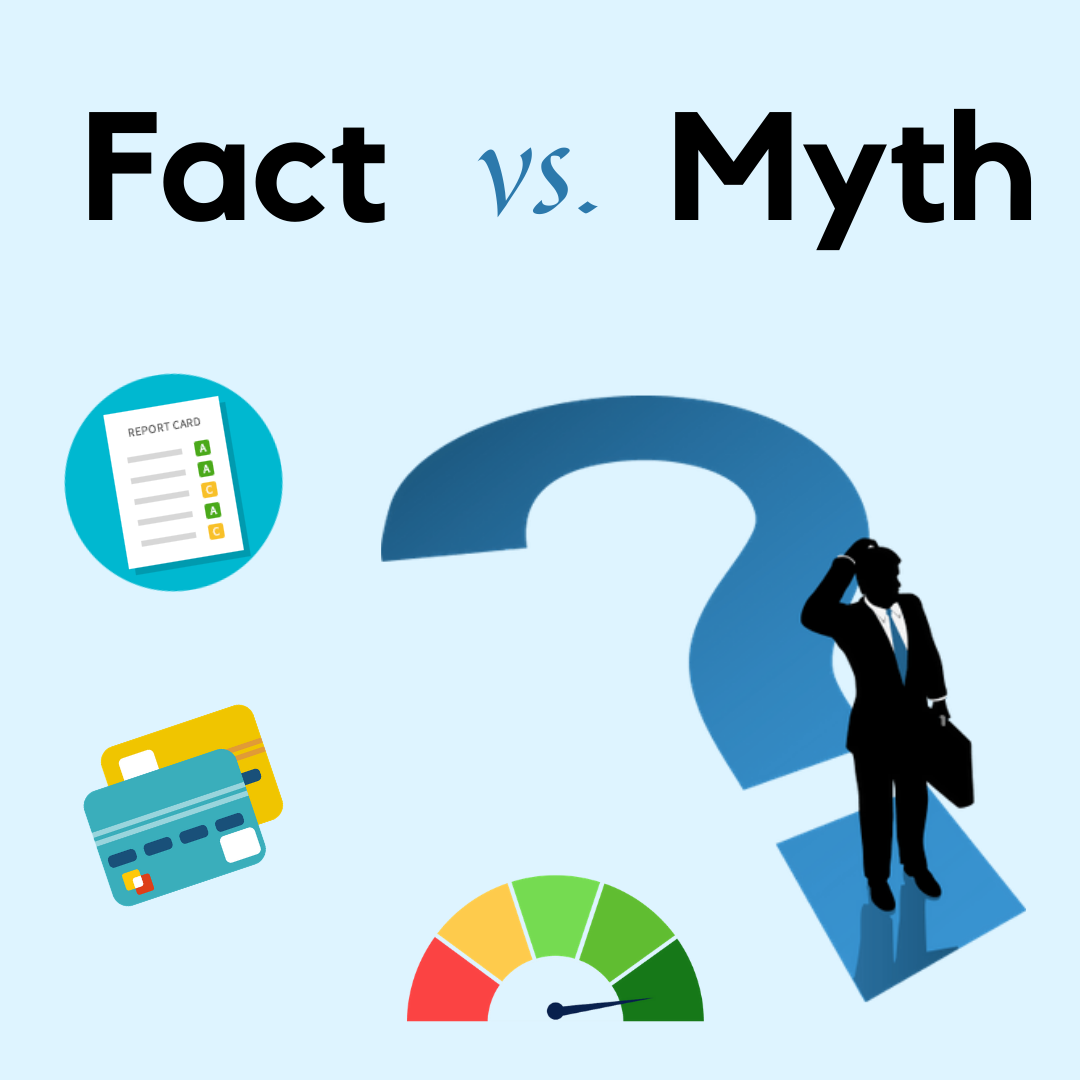10 Credit Score Myths You Can’t Afford to Believe
Credit ScoreRentReporters
May 13, 2021
8 mins read

You probably have a general idea of how to get a good credit score – like by paying your bills on time, avoiding excessive debt, and not applying for too many credit cards. But there are a lot of credit myths out there that can prevent you from maximizing your credit score.
1. You only have one credit score
There are three major credit bureaus that calculate your Vantage Score: TransUnion, Equifax, and Experian. Each bureau calculates its own credit score. Additionally, you have a FICO Score and a FICO Index Score.
The differences between your VantageScore and FICO Score
2. Loan and credit inquiries hurt your credit score
The answer here is kind of. Your credit score will be lowered if there are too many inquiries on your credit, but your credit score is less impacted if the inquiries are of the same kind–like comparing multiple lender rates for a car loan–and made within a certain amount of days of each other.
Additionally, while these inquiries can last on your report for up to two years, the effect is only a couple of points and the decrease is usually gone in a month or two.
So don’t be worried about the long-term impacts, and short term it’s not really noticeable on your score.
3. You and your spouse share credit scores
You and your spouse each have your own credit score and your own credit history. If you open a joint account, that information will show up on both your reports and can negatively or positively affect your credit scores, but you do not share credit scores when you get married.
4. Your credit score will go up if you have a job and get a pay raise
Having a job and the amount of money you make have no impact on your credit score. Your credit score is determined by payment history, public records like bankruptcies and judgments, credit history length, new accounts, credit inquiries, and the number of accounts in use. But your income and assets will affect your ability to borrow. Your new income can have an indirect effect on your credit score by lowering your debt-to-income ratio which can lead to credit line increases that lower your credit utilization rates, or make it easier to borrow and add trade lines with positive payment history to your report..
5. Checking your credit report lowers your credit score
If someone like a lender or creditor checks your credit, that is considered a “hard inquiry” and can slightly lower your credit score. If you check your own credit score, this is considered a “soft inquiry” and does not impact your score.
In fact, you should check your credit score regularly, and every 12 months, you are entitled to a free copy of your credit report from each of the nationwide credit reporting agencies. Apps such as CreditKarma, RentReporters, Discover’s Credit Scorecard, and Chase’s Credit Journey enable you to check your score for free whether you use their credit card or not as often as you like.

Take Our FREE Credit Literacy Quiz!
In just a few minutes, discover your credit knowledge level and get instant access to a FREE credit education course tailored to you!
6. Paying off a negative record will automatically raise your credit score
A negative record like a collections account or late payment can stay on your credit report for up to 7 years from when the delinquency occurred, and a bankruptcy can stay on your credit report for up to 10 years.
That said, you should continue to make every effort to pay off your negative records – just remember that it will take time for a negative record to be removed completely from your credit report. The good news though, is that the impact of negative records will decrease over time.
7. Using debit cards helps your credit score
A recent study by Credit Card Insider showed that 42% of people believe that using a debit card can impact your credit score. Even if you use your debit card and select “credit” at the check-out terminal, a debit card is essentially the same as using cash and does not affect your credit.
8. You need credit to get credit
This is another yes and no. It’s true you need a line of credit reporting your borrowing ability activity to the credit bureaus on a monthly basis to improve your credit score so you can qualify for offers, most lenders require some previous credit experience. If you don’t have any credit experience you are known as a credit invisible which can make getting approved more difficult, but not impossible.
Here are 7 ways you can build your credit profile without a line of credit.
9. Not paying credit card bills in full helps your credit
According to the myth, customers should leave a small balance on their account every month because it helps boost their credit score. This is simply NOT true! All leaving a small balance on your credit card does is allow the card company to charge you interest.
The credit bureaus track the information that makes up your credit score. Credit card companies merely represent one source of that information and cannot manipulate your credit score based on whether they earn interest revenue from you. So you should always pay your monthly credit card bill in full, especially because credit card interest can be very expensive.
10. Closing old accounts will improve your credit score
Many people think that closing old, inactive accounts can improve credit. But doing so could actually lower your credit score. That account no longer counts towards your average credit age.
It can increase your overall credit utilization (the amount of credit you use against your limit) and effectively shorten your credit history if it’s your oldest open account. And as we’ve already covered, a high credit utilization ratio and seeming “lack” of credit experience lead to a lower credit score.


